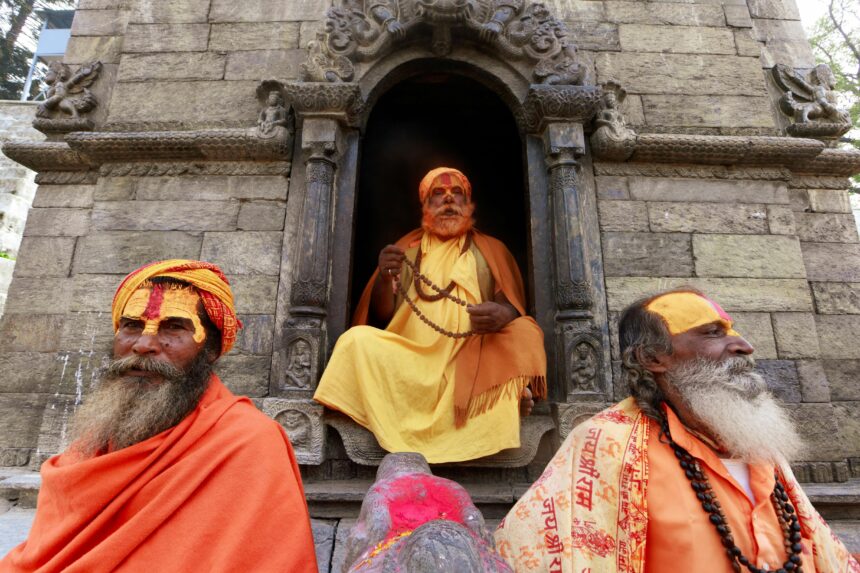New Delhi – In a country as spiritually diverse as India, religious leaders hold unparalleled influence. They have the power to unite communities, inspire moral action, and address societal issues. Yet, their actions and words often spark controversy, raising an unsettling question: Are these leaders acting as messiahs of peace, or are they manipulating faith to sow division and pursue personal agendas?
From incendiary public statements to alliances with political power, the role of religious leaders is increasingly coming under scrutiny.
The Double-Edged Sword of Influence
Religious leadership can be a force for good, but when misused, it becomes a weapon of division.
- Agents of Harmony
- Leaders like Mother Teresa and Swami Vivekananda channeled faith into actionable compassion, bridging divides and serving humanity.
- More recently, some spiritual organizations have tackled issues like hunger and disaster relief, proving the potential of faith-based leadership.
- Fueling Division
- In stark contrast, many leaders exploit faith to consolidate power, stoking communal tensions and advancing narrow agendas. Their words carry weight, but not always with the intent of fostering peace.
Headlines That Shook the Nation
Controversial statements by religious leaders have often sparked nationwide outrage, highlighting the fine line between guidance and manipulation.
- “Convert or Leave”
- A prominent leader in 2023 declared that those opposing a particular religion’s dominance should leave the country. This statement triggered widespread protests, with critics condemning it as an attack on India’s secular ethos.
- “Women Belong at Home”
- A spiritual figure recently proclaimed that women should adhere to “traditional roles,” drawing fire from activists and younger generations for perpetuating regressive stereotypes.
- “Faith Over Facts”
- Another leader dismissed scientific findings on climate change, urging followers to rely solely on divine intervention. This approach, criticized as reckless, undermines global efforts to address environmental crises.
Religion and Politics: A Dangerous Liaison
The growing intersection of religion and politics further complicates the role of spiritual leaders.
- Vote Banks Under the Guise of Faith
- During elections, endorsements from religious figures often dictate voting patterns, blurring the line between spiritual guidance and political campaigning. These alliances often prioritize political gains over communal well-being.
- Hate as a Political Tool
- Polarizing rhetoric from both religious and political leaders amplifies division. Calls for bans on certain religious practices or restrictions on interfaith marriages are thinly veiled attempts to reinforce power structures rather than promote harmony.
Social Media: Amplifier or Accelerator of Division?
In the digital age, social media has become a megaphone for religious leaders, with far-reaching consequences.
- Unity Through Virality
- Some leaders effectively use platforms like Instagram and Twitter to spread messages of peace, environmental conservation, and community service.
- Echo Chambers of Hate
- Conversely, controversial leaders exploit social media to spread incendiary messages, with algorithms amplifying polarizing content that deepens societal divides.
The Need for Accountability
Religious leaders hold a sacred responsibility to guide their followers toward truth and compassion. To ensure their influence is constructive, several measures are necessary:
- Transparent Leadership
- Faith communities should demand transparency in the actions and intentions of their leaders, rejecting blind allegiance.
- Stronger Laws Against Hate Speech
- Legislation should hold religious figures accountable for divisive rhetoric, applying the same standards to all public figures.
- Encouraging Critical Thinking
- Faith followers must be educated to question narratives and reflect on the core values of their beliefs.
- Promoting Interfaith Collaboration
- Religious leaders should work across boundaries to address common issues like poverty, education, and climate change.
Conclusion: A Call for True Leadership
Religious leaders have the power to elevate societies, but that power comes with responsibility. While many uphold the ideals of unity and compassion, others exploit their influence, using faith as a shield for divisive agendas.
The question remains: Are we empowering messiahs who uplift or manipulators who divide? The answer lies in holding leaders accountable and ensuring that faith remains a force for good rather than a tool for discord.


Leave a Reply